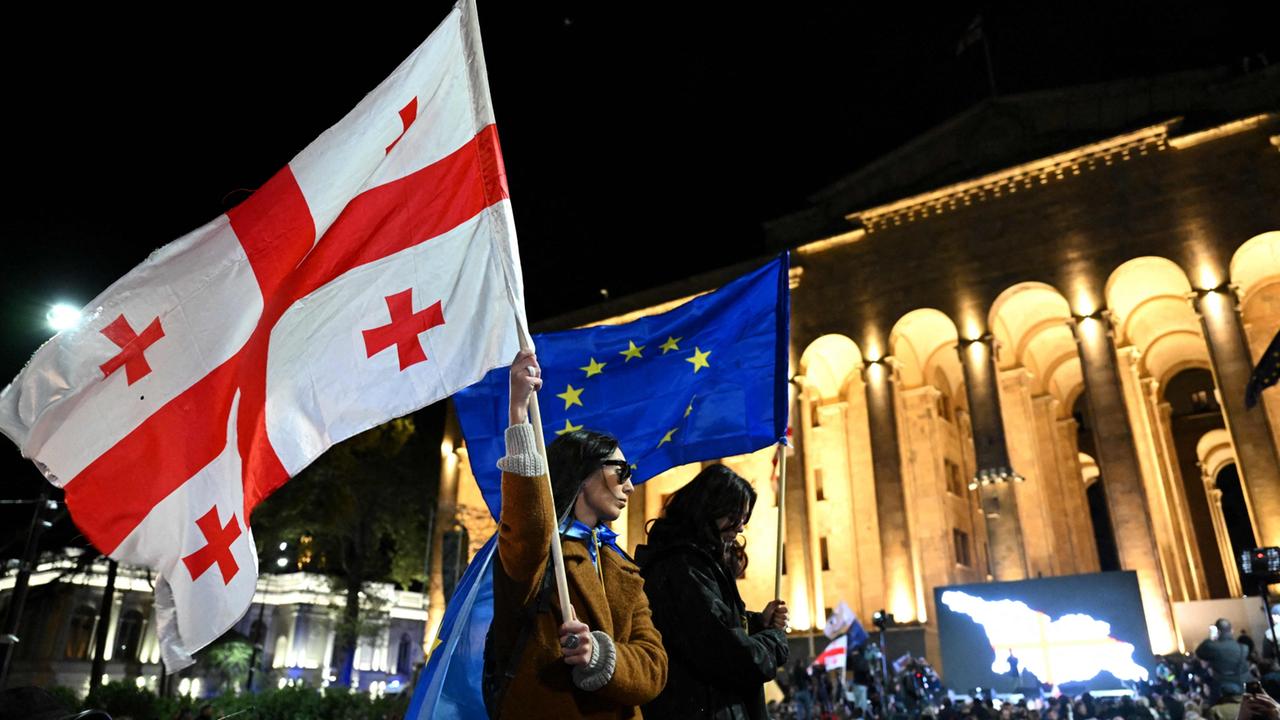Georgia is striving to join the EU, but the pro-Moscow Georgian Dream party emerged victorious in the parliamentary elections. The heads of state and government of the so-called Weimar Triangle are now setting conditions for accession talks.
The heads of state and government of Germany, France and Poland are concerned about the state of democracy in the country in light of the latest developments in Georgia. In a joint statement, Chancellor Olaf Scholz, French President Emmanuel Macron and Poland's Prime Minister Donald Tusk called for fundamental reforms before they can support the start of EU accession talks with the former Soviet republic.
They also called for a rapid investigation into the “irregularities” in the election just two weeks ago. The countries grouped together in the so-called Weimar Triangle made statements in the run-up to the Budapest summit of the European Political Community, which includes other countries in addition to the EU states – including Georgia.
Concrete Reform efforts demanded
In order to agree to accession talks, Georgia must reverse its current course and show concrete reform efforts, explained Scholz, Macron and Tusk.
After the election at the end of October, Georgia's election commission declared the Moscow-friendly ruling party Georgian Dream the winner. The pro-European opposition speaks of election fraud, the EU expressed concern about irregularities and possible voter influence by pro-Russian actors.
Germany, France and Poland are particularly pressing for Georgia to repeal recently passed laws that they consider to be at odds with European values and principles. “We support the democratic and European-oriented aspirations of the people of Georgia,” wrote Scholz, Macron and Tusk. “Freedom of assembly and expression are fundamental rights in a democratic society that must be upheld and protected.”
EU also calls for a change of course
The EU also called for a change of course in its enlargement report at the end of October. “Unless Georgia deviates from its current course, which jeopardizes its path to the EU, and does not make tangible efforts to resolve outstanding issues and implement important reforms, the European Commission will not be in a position to recommend the opening of negotiations,” it says. Georgia's accession process therefore remains effectively halted.
Georgia has officially been a candidate for EU membership since last December. Since then, Georgia has passed laws that are causing great concern in Brussels. These include a law against “foreign influence” based on the Russian model and another that, from the EU perspective, discriminates against sexual minorities.




